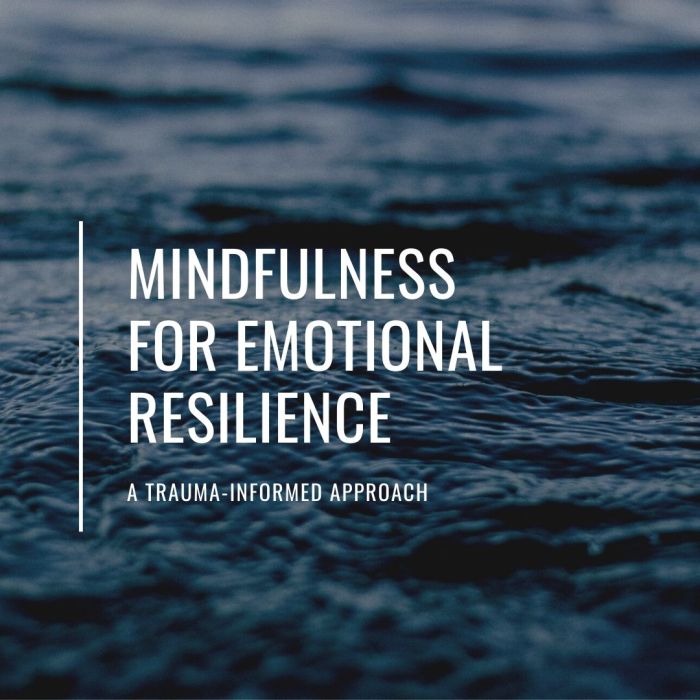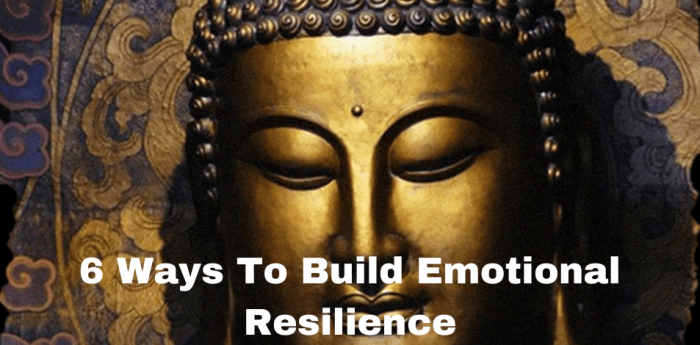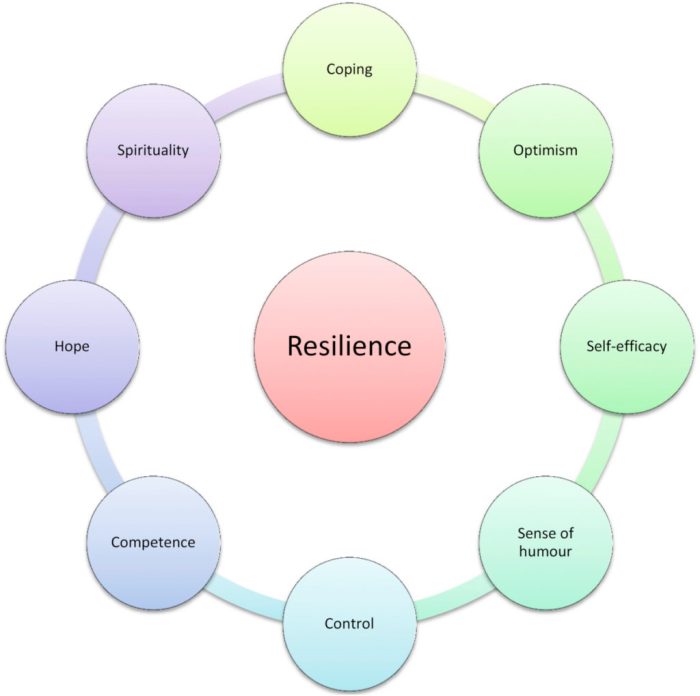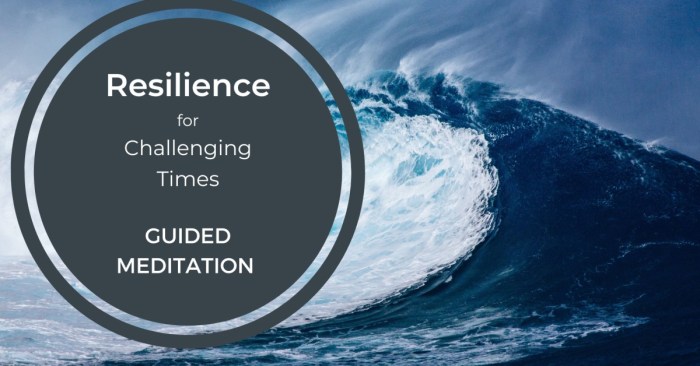How to Meditate for Developing Emotional Resilience sets the stage for a transformative journey into the realm of inner strength and peace, guiding readers through the art of meditation to enhance emotional fortitude and face life’s adversities with resilience and grace.
Delving deeper into the essence of meditation and emotional resilience, this guide offers insights, techniques, and practical advice to cultivate a resilient mindset and embrace the power of mindfulness in daily life.
Introduction to Emotional Resilience through Meditation

Emotional resilience refers to the ability to adapt and bounce back from stressful situations, setbacks, or adversity. It involves coping with challenges, managing emotions effectively, and maintaining a positive outlook despite difficult circumstances.Developing emotional resilience is crucial in facing life’s challenges as it helps individuals navigate through tough times with grace and strength. It enables individuals to maintain mental well-being, cope with stress, and thrive in the face of adversity.Meditation can play a significant role in enhancing emotional resilience.
By practicing meditation regularly, individuals can cultivate mindfulness, self-awareness, and emotional regulation. This, in turn, helps in building a strong foundation for emotional resilience, enabling individuals to respond to difficult situations with calmness and clarity.
Understanding the Basics of Meditation: How To Meditate For Developing Emotional Resilience

Meditation is a practice that involves focusing the mind and eliminating the constant stream of thoughts to achieve a state of mental clarity and emotional calmness. It is often associated with relaxation and stress reduction but goes beyond that to promote overall well-being.
Emotions can be like wild waves, tumultuous and unpredictable. Learn the art of meditation with How to Meditate for Emotional Balance and Stability and navigate the turbulent waters of your soul with grace and poise.
Types of Meditation Practices
There are various types of meditation practices that can be categorized based on different techniques and goals:
- Mindfulness Meditation: Involves focusing on the present moment without judgment, often achieved through breathing exercises.
- Transcendental Meditation: Involves repeating a mantra to transcend to a state of pure awareness and consciousness.
- Loving-Kindness Meditation: Focuses on cultivating feelings of compassion and love towards oneself and others.
- Guided Meditation: Involves following the guidance of a teacher or recorded audio to lead the meditation practice.
Connection Between Meditation and Emotional Well-Being
Meditation has been found to have a profound impact on emotional well-being by:
- Reducing stress and anxiety levels through relaxation techniques.
- Increasing self-awareness and emotional regulation by observing thoughts and emotions without attachment.
- Promoting positive emotions such as compassion, gratitude, and kindness through focused practices.
- Improving resilience in the face of challenges by cultivating a sense of inner peace and equanimity.
Techniques for Meditating to Build Emotional Resilience

Developing emotional resilience through meditation involves specific techniques that help cultivate a sense of inner strength and stability. By incorporating these practices into your meditation routine, you can enhance your ability to navigate challenging emotions with grace and composure.
As the sun sets and the world grows quiet, finding inner peace becomes essential. Explore the depths of meditation with How to Meditate Anywhere: 6 Techniques to Try and discover a path to tranquility wherever you may be.
Starting a Meditation Practice
Embarking on a meditation journey to build emotional resilience requires a commitment to regular practice. Follow these steps to initiate your meditation practice:
- Find a quiet and comfortable space where you can sit or lie down without distractions.
- Choose a time of day that works best for you, whether it’s in the morning to start your day with a clear mind or in the evening to unwind and release tension.
- Begin with a few deep breaths to center yourself and bring your focus inward.
- Set a timer for your desired meditation duration, starting with a manageable time frame such as 5-10 minutes.
- Close your eyes and focus on your breath, allowing any thoughts or emotions to pass without judgment.
- Gradually increase the duration of your meditation sessions as you become more comfortable with the practice.
Breathing Techniques in Meditation
Controlled breathing is a fundamental aspect of meditation that promotes relaxation and mindfulness. Incorporate the following breathing techniques into your meditation practice:
- Deep Breathing: Inhale deeply through your nose, expanding your diaphragm, then exhale slowly through your mouth, releasing any tension or stress.
- Equal Breathing: Inhale and exhale for an equal count, such as inhaling for a count of four and exhaling for a count of four, to establish a balanced rhythm.
- Box Breathing: Inhale, hold your breath, exhale, and hold your breath again for equal counts, creating a box pattern with your breath.
Maintaining Focus and Dealing with Distractions, How to Meditate for Developing Emotional Resilience
Staying focused during meditation can be challenging, especially when distractions arise. Use these tips to maintain your concentration and manage distractions effectively:
- Acknowledge distractions without engaging with them, gently guiding your attention back to your breath or a focal point.
- Practice self-compassion and patience if your mind wanders, understanding that it’s a natural part of the meditation process.
- Experiment with different meditation techniques to find what works best for you, whether it’s mindfulness, visualization, or loving-kindness meditation.
- Consistency is key – make meditation a daily habit to strengthen your emotional resilience over time.
Exploring Mindfulness in Meditation for Emotional Resilience
Mindfulness is the practice of being fully present and aware of your thoughts, feelings, sensations, and surroundings without judgment. In meditation, mindfulness plays a crucial role in helping individuals develop emotional resilience by cultivating self-awareness, emotional regulation, and the ability to respond to stressors effectively.
In the midst of chaos, finding serenity is a precious gift. Delve into the realms of meditation with How to Meditate for Peace of Mind: 7 Key Methods and unlock the key to a peaceful mind amidst the storms of life.
The Role of Mindfulness in Meditation
- Mindfulness allows individuals to observe their thoughts and emotions without getting caught up in them, fostering a sense of detachment and perspective.
- By focusing on the present moment through mindfulness, meditators can reduce rumination on past events or worries about the future, promoting emotional stability.
- Practicing mindfulness in meditation helps individuals recognize and acknowledge their emotions without becoming overwhelmed by them, leading to greater emotional resilience.
How Practicing Mindfulness Enhances Emotional Resilience
- Mindfulness meditation helps individuals develop a non-reactive stance towards challenging emotions, allowing them to respond more skillfully to stressful situations.
- By cultivating mindfulness, individuals can increase their emotional intelligence, which enables them to navigate difficult emotions with greater ease and composure.
- Regular practice of mindfulness in meditation can rewire the brain, strengthening neural connections associated with emotional regulation and resilience.
Examples of Mindfulness Exercises to Incorporate into Meditation
- Body Scan: Focus your attention on different parts of your body, noticing any sensations or tension without trying to change them.
- Loving-Kindness Meditation: Cultivate feelings of compassion and kindness towards yourself and others, enhancing empathy and emotional well-being.
- Observing Thoughts: Observe your thoughts as they arise during meditation, letting them pass by without getting attached to them or judging them.
Benefits of Meditating for Emotional Resilience

Meditation has numerous positive effects on emotional well-being, helping individuals develop resilience and cope with various challenges in life. By incorporating meditation into daily routine, individuals can experience improved mental health and overall well-being.
Managing Stress and Anxiety
- Meditation helps individuals reduce stress by promoting relaxation and calming the mind.
- Practicing mindfulness meditation can increase awareness of stress triggers and provide tools to manage stress more effectively.
- Regular meditation can lower levels of cortisol, the stress hormone, leading to a more balanced emotional state.
Regulating Negative Emotions
- Meditation allows individuals to observe their thoughts and emotions without judgment, leading to greater emotional self-awareness.
- Through meditation, individuals can develop the ability to respond to negative emotions in a more constructive and mindful way.
- By cultivating a sense of inner calm and peace through meditation, individuals can reduce the intensity of negative emotions such as anger, fear, and sadness.
Enhancing Emotional Resilience
- Regular meditation practice can strengthen the brain’s ability to regulate emotions, leading to increased emotional resilience.
- Individuals who meditate regularly often report feeling more emotionally stable and better equipped to handle life’s challenges.
- By fostering a sense of inner peace and equanimity, meditation can help individuals bounce back from setbacks and adversities with greater ease.
Overcoming Challenges in Meditation Practice

When starting a meditation practice to build emotional resilience, individuals may encounter various obstacles that can hinder their progress. It is essential to understand these challenges and have strategies in place to overcome them effectively.
Dealing with Restlessness or Lack of Motivation
Restlessness and lack of motivation are common experiences during meditation, especially for beginners. These challenges can make it difficult to focus and stay committed to the practice. To address these issues, individuals can:
- Start with short meditation sessions and gradually increase the duration as they build their focus and motivation.
- Find a quiet and comfortable space free from distractions to create a conducive environment for meditation.
- Experiment with different meditation techniques to see which ones resonate best with them and help alleviate restlessness.
- Set realistic goals and remind themselves of the benefits of meditation for emotional resilience to stay motivated.
Importance of Consistency and Patience
Consistency and patience are key components of building emotional resilience through meditation. It is essential to understand that progress may not happen overnight and that developing resilience is a gradual process. Strategies to maintain consistency and patience include:
- Establishing a regular meditation routine and setting aside dedicated time each day for practice.
- Accepting that setbacks and challenges are a natural part of the meditation journey and not becoming discouraged by them.
- Practicing self-compassion and acknowledging the effort put into meditation, regardless of any perceived lack of progress.
- Celebrating small victories and improvements along the way to stay motivated and committed to the practice.
In conclusion, How to Meditate for Developing Emotional Resilience illuminates the path to a more balanced and resilient existence, empowering individuals to harness the healing benefits of meditation for emotional well-being and inner harmony. Let this guide be your companion in the journey towards emotional resilience and lasting peace.